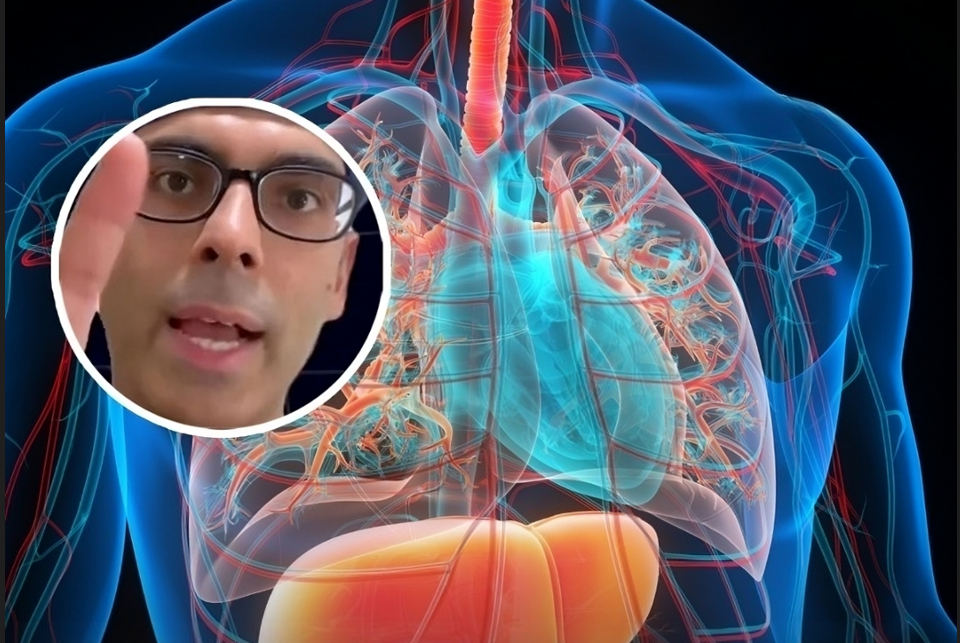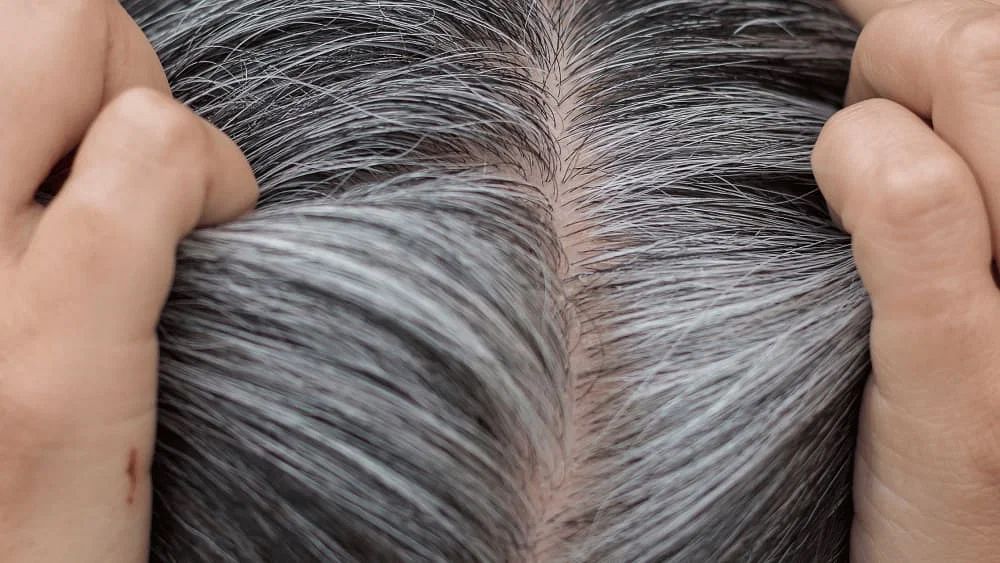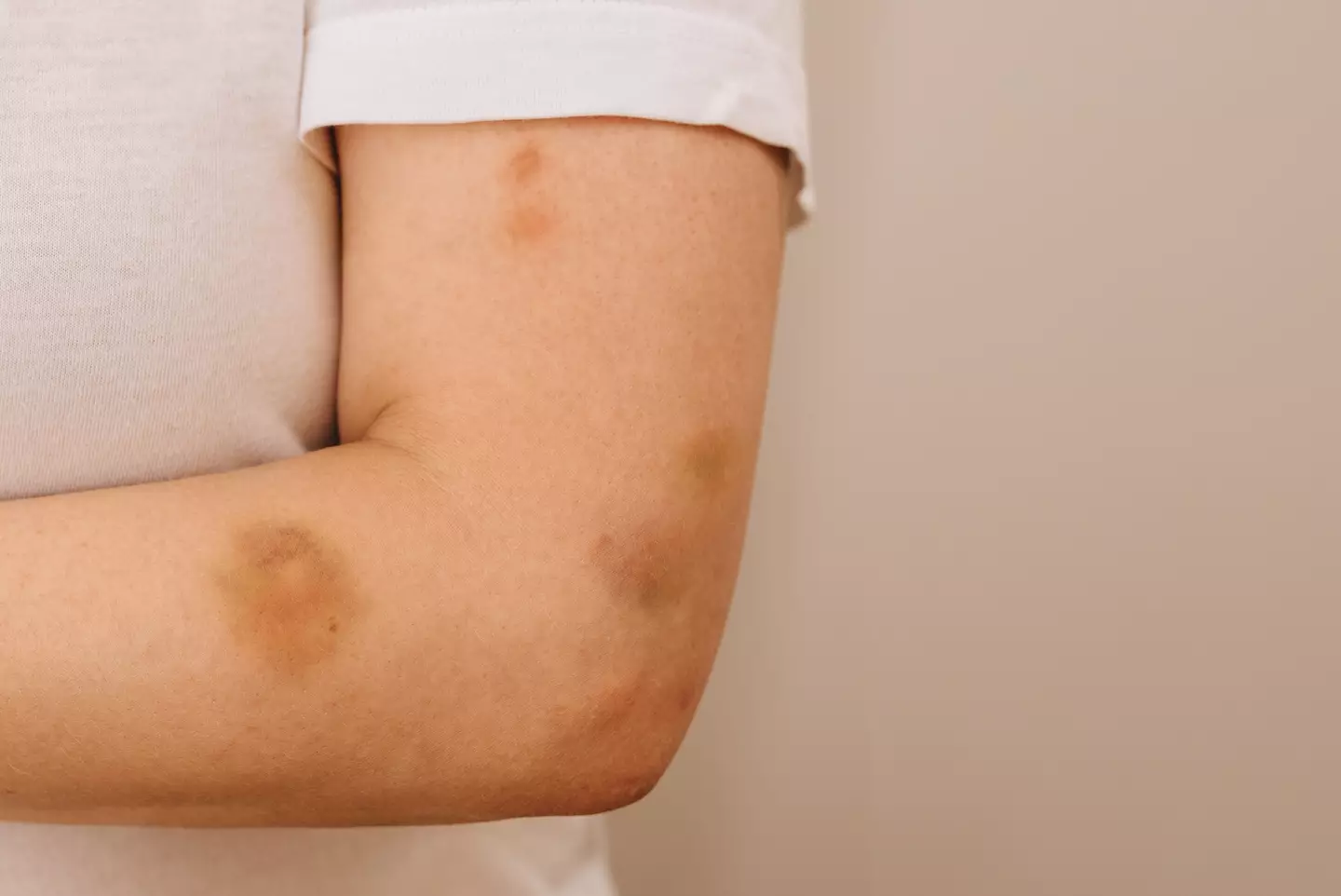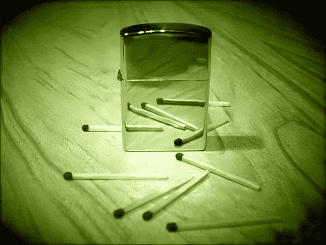In today’s fast-paced world, many of us struggle to maintain a balanced diet. While we might focus on eating enough protein or carbs, essential micronutrients like calcium, iron, and vitamins are often overlooked. Dr. Saurabh Sethi, a California-based gastroenterologist, recently shared on TikTok the five warning signs that indicate your body may be lacking vital nutrients. Recognizing these signs early on can help you make the necessary dietary changes to improve your health and well-being.

1. Brittle Nails: A Sign of Protein and Iron Deficiency
Your nails can reveal a lot about your overall health. Brittle, weak nails are often one of the first signs of nutrient deficiencies, specifically protein and iron.
The Importance of Protein and Iron for Nails
Nails are primarily made of keratin, a protein that provides strength and structure. Iron plays a crucial role in oxygen transportation, which is vital for healthy nail growth. When you don’t consume enough of these nutrients, your nails may become fragile, split easily, and take longer to grow.
Foods to Boost Protein and Iron Levels
If you notice brittle nails, try adding more iron-rich and protein-packed foods to your diet. Some excellent options include:
- Red meat
- Poultry
- Fish
- Beans
- Spinach
- Eggs
According to Harvard Medical School, an average adult weighing around 68 kg needs approximately 54 grams of protein per day. Integrating these foods into your meals can help strengthen your nails and improve your overall nutrient intake.
2. Twitching Eyelids: Linked to Magnesium Deficiency
Ever experienced an uncontrollable twitch in your eyelids or limbs? This common annoyance may be more than just a minor irritation—it could be a sign of low magnesium levels.
@doctorsethimd 5 Signs Your Body Needs More Nutrients ‼️🚨 Doctor Sethi #medical ♬ original sound – Doctor Sethi ⚡️
Understanding the Role of Magnesium
Magnesium is essential for transmitting nerve impulses and muscle function. When your body lacks this vital mineral, it can result in involuntary muscle spasms, also known as myokymia.
Why Magnesium Deficiency Occurs
Magnesium deficiency is often linked to stress, fatigue, excessive caffeine intake, or prolonged screen exposure. Since magnesium plays a significant role in muscle relaxation, a deficiency can trigger twitches and spasms.
How to Increase Magnesium Intake
If twitching persists, consider adding magnesium-rich foods like:
- Nuts and seeds
- Leafy greens (e.g., spinach, kale)
- Whole grains
- Bananas
- Avocados
Magnesium supplements are also available, but it’s best to consult with a healthcare provider before starting any new supplementation.
3. Clicking Joints: Potential Vitamin D3 or Calcium Deficiency
If your joints often make a clicking sound, it could be more than just a minor inconvenience—it might be signaling low levels of vitamin D3 or calcium.
Why Vitamin D3 and Calcium Are Crucial
Calcium is essential for strong bones, while vitamin D3 helps the body absorb calcium effectively. As you age, reduced calcium and vitamin D3 levels can weaken bones and lead to joint discomfort, often resulting in clicking or popping sounds.
Boosting Calcium and Vitamin D3 Levels
To address this issue, aim to consume foods rich in these nutrients, such as:
- Dairy products (milk, yogurt, cheese)
- Fatty fish (e.g., salmon, mackerel)
- Leafy greens (e.g., broccoli, kale)
- Fortified cereals and juices
Spending time outdoors can also help, as sunlight exposure is a natural source of vitamin D.
4. Prematurely Greying Hair: Could Be Due to Vitamin B12 or Copper Deficiency
Seeing grey hairs before the age of 20 (in Caucasians) or before 30 (in people of African descent) is considered premature greying. While genetics play a role, a nutrient deficiency could also be a contributing factor.

The Link Between Vitamin B12, Copper, and Hair Health
Vitamin B12 is essential for red blood cell production and oxygen transport to hair follicles. Low levels can affect the production of melanin, the pigment responsible for hair color. Similarly, copper is crucial for melanin production, which gives hair its natural color.
Foods That Combat Premature Greying
To maintain hair pigmentation, try adding the following foods to your diet:
- Meat and dairy for Vitamin B12
- Liver and shellfish for copper
- Lentils and nuts as plant-based sources
While there’s no guaranteed way to reverse greying, ensuring sufficient intake of these nutrients can help slow down the process.
5. Bruising Easily: Could Indicate a Lack of Vitamins C or K1
If you find yourself bruising easily without any apparent cause, you might be missing out on vital nutrients like vitamin C or K1.
Why Vitamin C and K1 Matter for Bruising
Vitamin C plays a significant role in collagen formation, which helps maintain the integrity of blood vessels. A deficiency can lead to weakened capillaries, making bruising more likely. On the other hand, vitamin K1 is critical for blood clotting, and low levels can also contribute to easy bruising.

This could be a sign of a Vitamin C deficiency (Getty Stock Photo)
Adding Vitamin C and K1 to Your Diet
If you notice unexplained bruises, try incorporating these foods:
- Citrus fruits (oranges, lemons) for Vitamin C
- Bell peppers, strawberries, and broccoli for more Vitamin C
- Leafy greens (e.g., spinach, kale) for Vitamin K1
- Green beans and parsley for extra Vitamin K1
Increasing your intake of these nutrients can help improve blood vessel strength and clotting, reducing the likelihood of bruising.
Conclusion: Listen to Your Body’s Nutrient Deficiency Signals
Your body often gives subtle hints when it’s not getting the nutrients it needs. Signs like brittle nails, twitching eyelids, clicking joints, prematurely greying hair, and easy bruising can all point to nutrient deficiencies. While these symptoms don’t always indicate a serious health issue, they serve as useful reminders to evaluate and improve your diet.
Paying attention to your body and adjusting your nutrition accordingly can lead to better health and vitality. If you experience persistent symptoms or have concerns, consult a healthcare professional for personalized advice. Making simple dietary changes can have a profound impact on your well-being.


